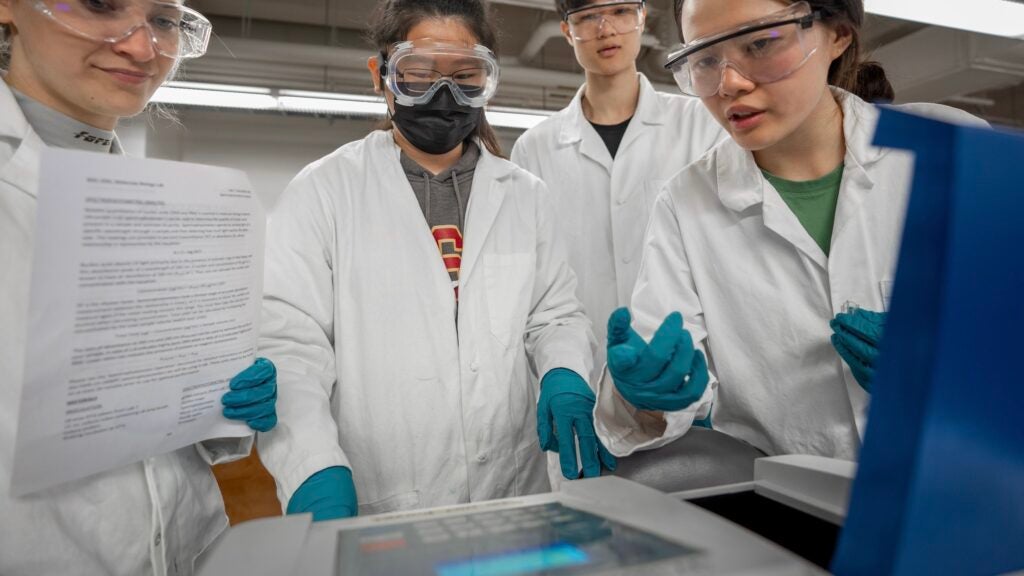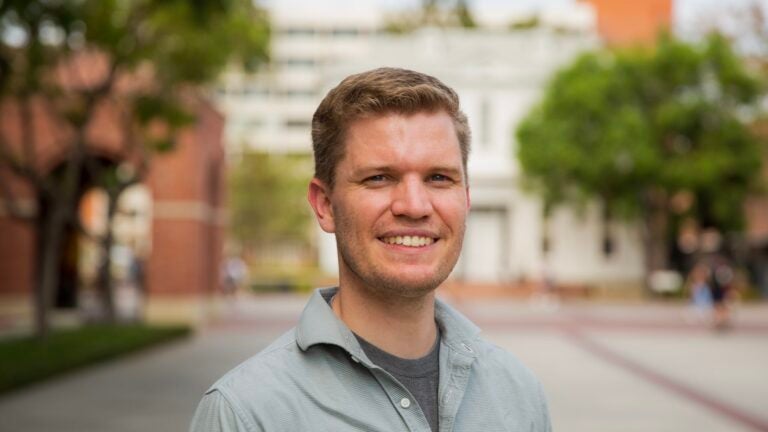Behavioral and Health Genomics Center
Overview
 Recent, rapid advances in genomics have made it increasingly inexpensive to measure genetic variation across individuals. These advances have made it possible for social scientists to begin to study how genetic variation relates to behavioral phenotypes (i.e., behaviors and outcomes), such as educational attainment, subjective well-being, and economic preferences. The USC Dornsife Behavioral and Health Genomics Center brings together leading researchers in the emerging field of social-science genomics.
Recent, rapid advances in genomics have made it increasingly inexpensive to measure genetic variation across individuals. These advances have made it possible for social scientists to begin to study how genetic variation relates to behavioral phenotypes (i.e., behaviors and outcomes), such as educational attainment, subjective well-being, and economic preferences. The USC Dornsife Behavioral and Health Genomics Center brings together leading researchers in the emerging field of social-science genomics.
The goals of the Center are:
- To apply cutting-edge methods from statistical genomics to study behavioral phenotypes.
- To develop new methods to improve our understanding of the genetic architecture of behavioral phenotypes.
- To shed light on the biological and environmental pathways underlying the relationships between genetic variation and behavioral phenotypes.
- To explore how genetic associations can be amplified or dampened by environmental factors and policy interventions.
- To develop methods of leveraging results from social-science genomics to improve other research in social science (for example, using genetic predictors as control variables).
A distinguishing feature of the Center is its emphasis on using very large datasets in order to conduct social-science genomics research. This emphasis arises from a recognition that for behavioral phenotypes, virtually any particular genetic variant has a very small association, and hence very large samples are needed to produce robust and replicable findings. The Center has close ties with The Social Science Genetic Association Consortium, which is a research infrastructure that brings together many researchers with access to genomic data in order to facilitate large-sample studies of behavioral phenotypes.
Team
Director
Faculty
Faculty
Faculty
Faculty
Faculty
Affiliated Faculty/Research Scientists
Postdoctoral Fellow
Robel Alemu
Research Assistants
Matthew Howell
Dhruva Jaishankar
Administrative Assistant
Jessica Lozano
Funding Sources
-
Funding Source: National Institute on Aging
Grant Number: R21AG067585
Project Dates: 05/01/2020 – 04/30/2022
Principal Investigator: Patrick Turley
Title: Estimating assortative mating, its history, and its future effect on genetic variance for health, behavioral, and ancestry phenotypes using cross-sectional data
Assortative mating can lead to a greater prevalence and severity of disease in the population and can mislead researchers studying the relationships between phenotypes. A key objective of this project is to precisely estimate how parents have sorted over time to describe past and future trends in public health—and to show how to use those estimates to take assortative mating into account when trying to narrow down the search for the biological roots of diseases. -
Funding Source: Good Ventures Foundation
Project Dates: 01/01/2019 – 12/31/2021
Principal Investigator: Arie Kapteyn
Title: Social Science Genetic Association Consortium
Funds to support the Social Science Genetic Association Consortium and the Behavioral and Health Genomics Center.
Training Opportunities
-
Sponsored by the Russell Sage Foundation
For more information please visit https://www.rsfgenomicsschool.com/
Contact Us
For more information, please email us:

